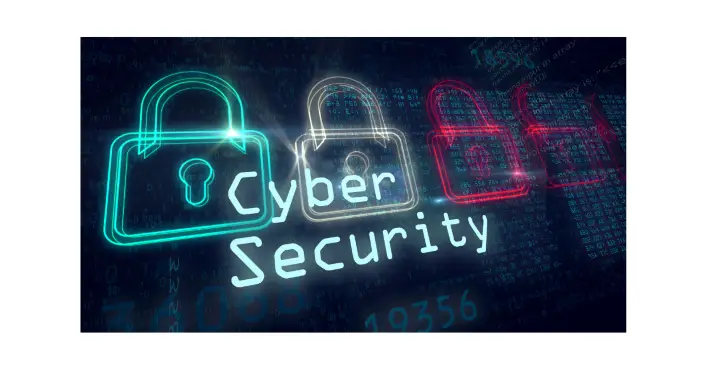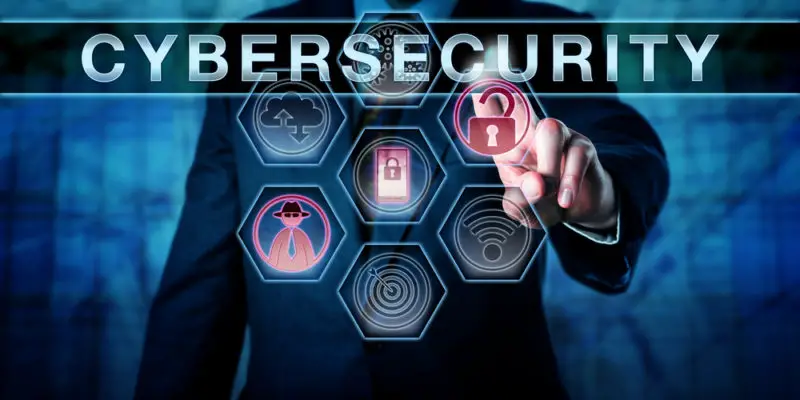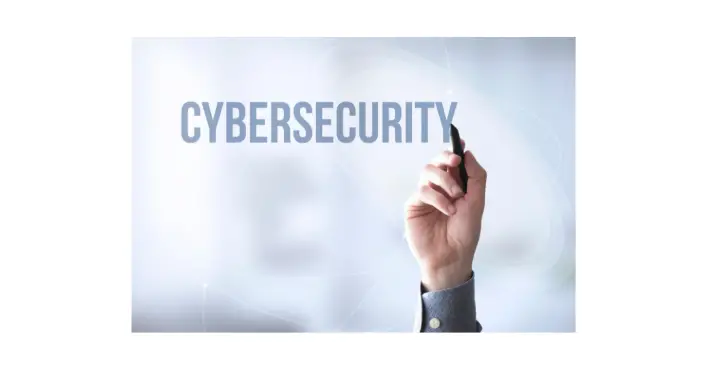As we increasingly assimilate digital and interconnected systems into every facet of our lives, the importance of cybersecurity continues to escalate. With a steady uptick in cyber threats and attacks, understanding cybersecurity has become necessary rather than an option.
Aimed at the general public interested in this critical subject, this essay provides a comprehensive understanding of cybersecurity fundamentals.
The expose elucidates the importance of network and software security, explores free online courses, assesses course content and the corresponding skills gained, and highlights potential career opportunities in the cybersecurity sector.
Understanding Cybersecurity
To lay a comprehensive foundation in the ever-evolving landscape of cybersecurity, one must develop an understanding of both offensive and defensive measures.
It’s not merely about mastering the intricacies of technical defenses such as firewalls, intrusion detection and prevention systems, and anti-malware.
Equally vital is the proficiency in cryptographic techniques to ensure data integrity, secure key exchange and digital signatures, and acquire the ability to recognize potential vulnerabilities and exploits that could compromise a system.
The principle of the CIA triad (Confidentiality, Integrity, and Availability) is fundamental to any cybersecurity endeavor.
Confidentiality ensures that data or resources can be accessed only by authorized parties. Integrity safeguards that only authorized parties are allowed to modify the data or systems.
Finally, Availability means the data or systems should always be accessible to those who need them.
These three principles, alongside the understanding of Authentication, would pave the foundation for comprehending various measures and countermeasures in the digital security landscape.
Among the abstract concepts, perhaps the human factor is the most challenging yet crucial to grasp.
Acknowledging that the weakest link in cybersecurity is often the user can be pivotal in building a robust defense strategy.
Phishing, social engineering, and insider threats are examples that underscore the significance of user education and security awareness.
A mixture of technical proficiency, understanding of foundational principles, and constant vigilance make up the pillars of a resilient cybersecurity industry.
The aforementioned are stepping stones to master this domain and to promote a more secure digital space.

Free Online Cybersecurity Courses
Diving headfirst into this impassioned endeavor is the trifecta of academia: Harvard University, the Massachusetts Institute of Technology (MIT), and Stanford University, which have partnered with edX, a pioneering online teaching platform.
Together they offer an array of cybersecurity courses aimed at individuals seeking to further their knowledge concerning cutting-edge cybersecurity practices.
These courses delve into subjects such as cryptography, software security, data privacy, network security, and web application security. Beyond course material, the platform enables direct interaction with experienced professors, cultivating collaborative learning.
Interestingly, the golden opportunity to delve into the world of cybersecurity extends beyond the traditional bastions of academia.
Coursera, an accessible platform known for its extensive course offerings, offers a kaleidoscope of cybersecurity courses in partnership with prominent institutions such as the University of Maryland and the University of Colorado System.
These courses are designed to empower enrollees with the necessary competencies to identify, prevent, and mitigate cyber threats. Furthermore, the non-profit Khan Academy provides educational content with a focus on continual learning.
Their catalog offers a course on the basics of cryptography and information theory, both vital elements of modern cybersecurity.
Parallelly, Cyber Aces, a platform with a unique focus on cybersecurity, offers comprehensive modules on operating systems, networking, and system administration, which are all fundamental components of a well-rounded cybersecurity knowledge base.
These free cybersecurity courses, among many others across the globe, illuminate the pathway to an ever-evolving field, a daunting but necessary challenge that those with a passion for cybersecurity willingly undertake.
Amidst an era of escalating cyber threats, opportunities for education in this niche area beckon with unprecedented gravity, inviting all willing learners to delve into the nuanced world of cybersecurity.

Course Content and Curriculum
In continuation, a typical free cybersecurity course encapsulates the concepts of digital forensics – an ever-evolving discipline that focuses on uncovering and interpreting electronic data.
The objective of the process is to preserve any evidence in its most original form while performing a structured investigation.
Students interested in cybersecurity must grasp fundamental concepts such as recovering lost or accidentally deleted data, discovering hidden data, capturing time-critical information, and validating results.
Additionally, courses frequently impart proficiency in developing an organization’s security infrastructure. Known as security architecture, this facet of cybersecurity provides a framework that describes how security controls won’t just be integrated within an organization’s networks but also their effectiveness in deterring cyber threats.
Professionals must figure out how to strategize, implement, and update the designated framework as needed. Their aim is to stave off would-be intruders whilst ensuring a balance of user accessibility and functionality.
In the realm of cybersecurity, understanding risk management is equally pressing. This entails identifying, evaluating, and prioritizing risks, followed by applying resources to minimize, monitor, and control their impact.
One must master diverse analytical tools and methodologies to monitor and report on risk across an organization. This comprises network systems and software applications and extends to aspects of organizational operation and business continuity processes.
An understanding of these fundamental components bolsters the cyber resilience of institutions.
Finally, courses often delve into legislation and compliance. This includes familiarizing oneself with regulations like the GDPR or the Health Insurance Portability and Accountability Act (HIPAA) designed to protect sensitive data.
Understanding these enables professionals to build systems and practices in tune with the regulations, thus making them legally compliant. This legal instruction fortifies one’s cybersecurity education, nurturing a 360-degree understanding of wielding defenses against the formidable landscape of cyber threats.

Skills Gained From Cybersecurity Courses
In enrolling in a free cybersecurity course, participants will find themselves navigating the demanding and nuanced terrain of digital forensics, a significant discipline within the cybersecurity domain.
This crucial skill involves meticulous techniques to investigate and interpret electronic data. Unearthing such data could entail recovering seemingly lost or accidentally deleted files, exposing concealed data, and capturing critical information in a timely manner.
Successful execution of these techniques then permits the validation of results, fostering not only the defense against cyber threats but also exposing valuable insights into potential vulnerabilities.
The course will also delve into the essential sector of security infrastructure development. This involves formulating and implementing a comprehensive security architecture within an organization.
A professional well-versed in this domain will anticipate risks, taking progressive steps to minimize, monitor, and control these potential hazards.
Grasping the usage of analytical tools and methodologies tailored for this purpose can effectively streamline the risk management process.
Moreover, mastering the legal aspects of cybersecurity is an indispensable asset. Cybersecurity courses often shine a spotlight on this suite of knowledge, orienting individuals towards a thorough understanding of legislation and compliances like the General Data Protection Regulation (GDPR) and the Health Insurance Portability and Accountability Act (HIPAA).
In this context, building systems and practices in adherence to such regulations not only ensures the legal protection of an organization but also arms one with the capability to harness cybersecurity law effectively, fortifying defenses against cyber threats.
Therefore, entrenching oneself in a free cybersecurity course offers an amalgamation of practical and theoretical knowledge emphasizing resilience, adaptability, and vigilance in the complex landscape of cybersecurity.

Career Opportunities in Cybersecurity
In the ever-evolving sphere of cybersecurity, it becomes integral for professionals to carve their own niche.
These sectors have one commonality: applying the meticulous knowledge acquired from free cybersecurity courses.
Potential career paths span across a kaleidoscope of opportunities, one such being an Incident Responder.
This role involves immediate intervention when security breaches or other incidents occur.
With an understanding of comprehensive security frameworks, handling and preempting threats, and prioritization of risk, an incident responder can protect mission-critical data under tight schedules.
Moreover, free cybersecurity courses set a robust academic foundation for roles such as Security Auditor.
This advanced position involves inspecting and scrutinizing an organization’s security architecture.
The aim? To identify lapses or vulnerabilities and recommend improvements for enhancing defense mechanisms.
This comprehensive audit covers elements such as firewalls, intrusion detection systems, and policies regarding data confidentiality and integrity.
Understanding GDPR and HIPAA compliance is pivotal in this role, as neglecting these regulations could incur severe legal and financial penalties for the organization.
Advancing further, a Chief Information Security Officer (CISO) is another esteemed post one could aspire to.
This executive management role encompasses developing and implementing a security program that mitigates risk and ensures operational continuity in compliance with applicable laws.
A keen understanding of risk identification, legislation and compliance, cybersecurity awareness, and the efficacy of technical defenses is essential to excel in this role.
By taking on the responsibility as an organization’s first line of defense against cyber threats, a CISO embodies the cornerstone of the organization’s electronic data security.

Arming oneself with the knowledge of cybersecurity is no longer a choice but rather a requirement in our rapidly evolving digital landscape.
As a comprehensive guide, this essay has outlined the essentials of cybersecurity, the free online courses available, the integral curriculum, the crucial skills one can gain, and the promising career opportunities that await in the field. As individuals, businesses, and governments alike fall prey to cyber threats, a fortified defense is paramount.
And partaking in cybersecurity courses helps forge this line of defense, making each of us a more secure and responsible digital citizen.

Chris Ekai is a Risk Management expert with over 10 years of experience in the field. He has a Master’s(MSc) degree in Risk Management from University of Portsmouth and is a CPA and Finance professional. He currently works as a Content Manager at Risk Publishing, writing about Enterprise Risk Management, Business Continuity Management and Project Management.

